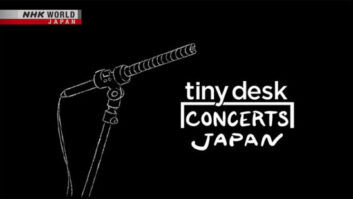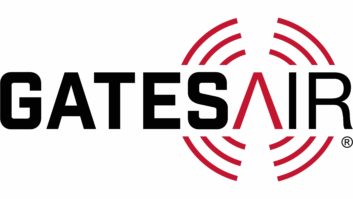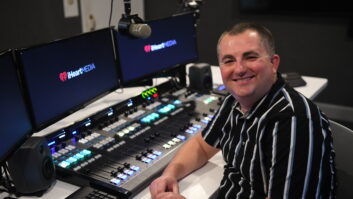World strife can be good for business, at least for those who sell world-band radios.
Whenever danger looms, people turn to radio – which is why shortwave radio sales boomed during the 1991 Gulf War and climbed again in the days leading up to the U.S. assault on Iraq in March.
“Yes, we have experienced a boost in world-band radio sales in the past few months,” said Chris Justice, chief engineer at C. Crane Company, a radio designer and vendor in Fortuna, Calif.
“Sales have been relatively steady since 9/11,” said Keith Carcasole, co-owner of The Shortwave Store Web site.
“We have noticed that sales fall flat whenever President Bush makes any sort of public announcement, (while) the days following the announcement usually bring more sales,” Carcasole said. “We can only assume that people take time out of their busy schedules to listen to what the president has to say. Once they get back to their regular schedule, it may take a day or so to get around to ordering a radio.”
News from the scene
That world-band sales climbed in recent weeks comes as no surprise to Fred Osterman, president of Universal Radio in Reynoldsburg, Ohio. The same thing happened during the 1991 Gulf War, in fact, the product’s sales cycle “always has been” tied to world events.
The same can be said for world-band station directories such as the annual “Passport to World Band Radio,” published by International Broadcasting Services.
“Passport sales have been moderately higher thus far in 2003 than they were in comparable periods in recent years,” said editor-in-chief Larry Magne. “We don’t have any data on this for 2003, but based on past experience the growth is almost exclusively those among the public interested in world affairs, or with loved ones in uniform.
“The market of radio enthusiasts is relatively static and doesn’t follow changes in world affairs.”
It makes sense that people with family or friends in the military want to keep a close ear on world events; but why are other Americans buying world-band radios?
In times of crisis, it’s because they want to get their news straight from the scene, Justice said.
“These days, especially when the Internet is down or unavailable, radio remains the most direct source of information around the world. It just seems just about anyone, from all walks of life, wants to get their information direct from the source.”
Americans are also buying world-band radios as a backup to traditional AM/FM radios, TVs and Web-browsing computers. Sept. 11, 2001, showed just how vulnerable other media can be during an attack.
On that fateful day, popular Web sites like CNN.com were inaccessible due to demand. Meanwhile, the collapse of the World Trade Center brought down New York City’s highest transmission tower, putting many local TV and some radio stations off the air when they were needed most.
In contrast, world-band news sources such as the BBC World Service kept running throughout 9/11, a fact widely noted afterwards. Today, “We think that most people are buying shortwave radios because they are worried about a power outage which may take down the local media,” Carcasole said; “leaving people without shortwave with no outlet for news.”
This leads to the third reason people buy world-band radios: survivability. If terrorists knock out power, battery-powered radios will keep working. Some receivers are self-powered, generating their own electricity through solar power panels, built-in windup generators, or both.
This explains why, when it comes to sales, “Self-powered radios are doing well right now,” Justice said. “Maybe more people realize that it’s important to have a radio that doesn’t depend on external power sources.”
Popular models
What’s moving off the shelves?
“It’s the usual suspects,” said Universal Radio’s Osterman. He listed the Grundig Yacht Boy 400 digital portable ($149.95), the new Grundig S350 analog portable ($99.95), and the self-powered Grundig FR200 analog portable ($39.95), all of which Universal is selling “by the boatload,” Osterman said in March.
“High- and low-end portables seem to be selling best for us right now,” said Shortwave Store’s Carcasole. “Our two top-selling models are the Sangean ATS-909 ($239.95) and the Grundig FR200 ($39.95), which are at opposite ends of the spectrum.”
The ATS-909 is a high-end, sensitive digital portable, while the FR200 is a windup “survival radio” with a flashlight built in. When it comes to popular features, “having the ability to be self-powered or good reception seem to be the things that people look for the most,” he said.
Retailers know that the buying public’s heightened awareness will die down, but they expect continued interest.
“I have a feeling that sales will continue to be slightly above average for many months following any sort of world stability,” Carcasole said. Americans remained concerned about numerous world hot-spots including North Korea.
Passport editor Larry Magne sees future world-band sales as remaining “good, especially if the Bush Doctrine results in more rogue nations being attacked. A ‘new Cold War’ should not only result in more interest in listening to foreign public broadcasters, but also give international broadcasters a new sense of identity to replace that they had during the Cold War – and the budgets and transmissions to go with it.”












